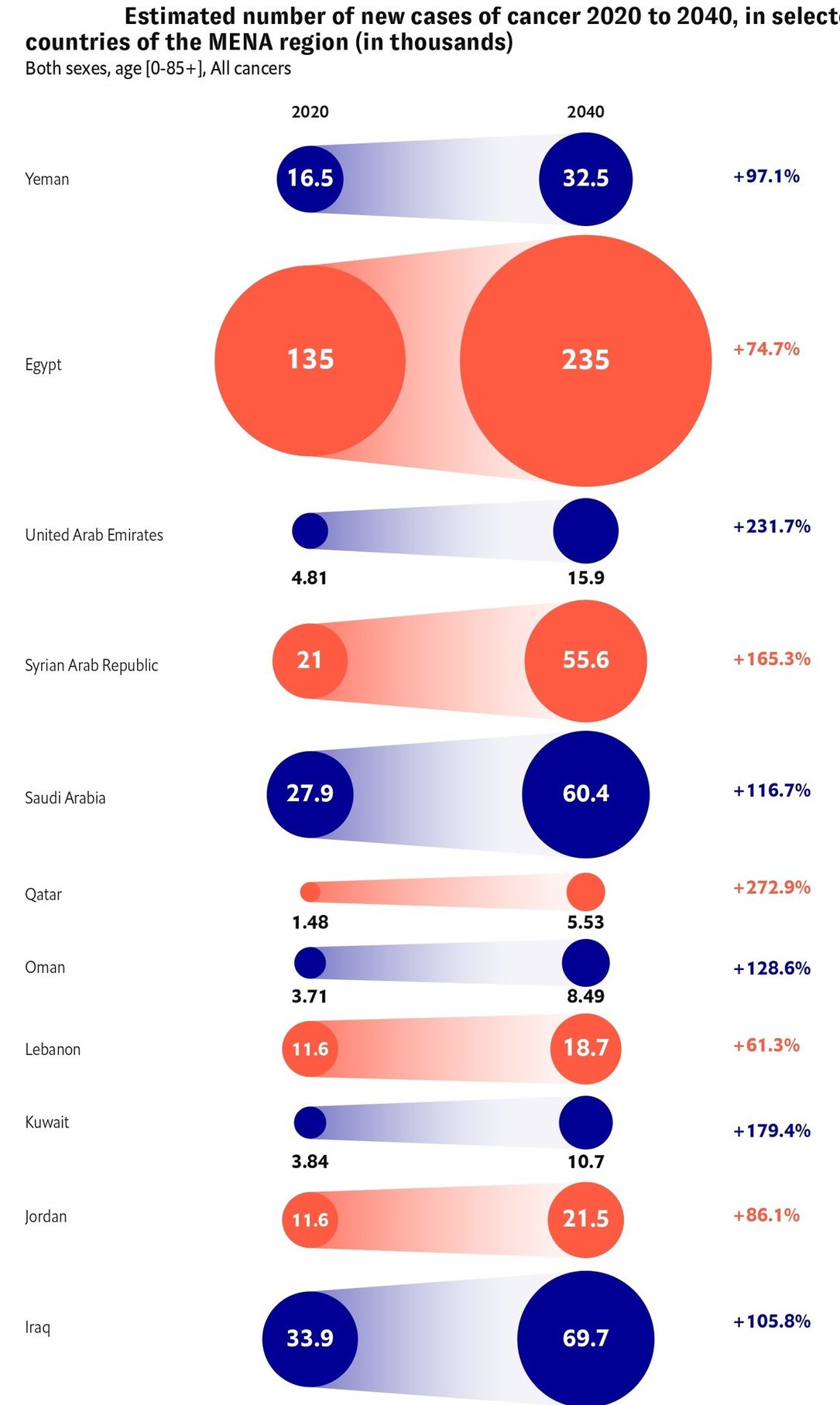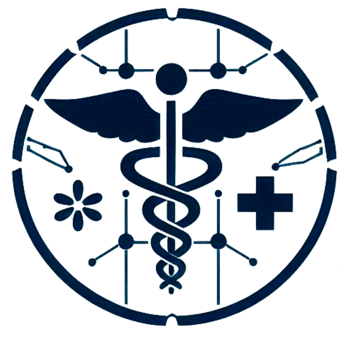Oncology
Oncology in the Middle East and North Africa (MENA) continuously evolves to address the rising cancer incidence. The demand for advanced oncology care has become increasingly urgent. In the Middle East, more than 430,000 new cases were reported in 2020, with women being particularly affected, especially by breast cancer linked to obesity.
A scoping review of articles from PubMed, Science Direct, CINAHL, EMBASE, and Cochrane Library databases between 1997 and 2022 revealed significant modifiable risk factors for cancer in the Middle East and North Africa (MENA) region. These factors include tobacco consumption, obesity, physical inactivity, and diet [1].
References:
[1] BMC Public Health volume 24, Article number: 223 (2024)


The Middle East and North Africa (MENA) region faces several challenges related to cancer care. Here are some key points:
Demographic Transition:
The MENA region is experiencing a demographic shift, with an aging population. By 2050, the elderly population (aged 65 years) is expected to increase by 290%, leading to a higher burden of cancer.
Variability in Access and Quality:
Due to the region's diversity in terms of population size, density, and economic systems, access to quality cancer care varies significantly. Policymakers and providers must address this heterogeneity.
Lack of Resources:
Low-income countries in the MENA region struggle with inadequate population registries, human resources, medical equipment, and access to novel drugs. COVID-19 has exacerbated inequities in cancer care.
Screening and Early Diagnosis:
Late-stage cancer diagnoses are common, impacting treatment costs and outcomes. Prioritizing screening can lead to early detection and better survival rates.
Integrated Services:
Strengthening primary care and palliative care alongside specialized cancer services is crucial for comprehensive cancer care.
Cancer Registration:
Issues like incomplete medical records, lack of trained staff, and weak healthcare infrastructure hinder effective cancer registration
Innovative healthcare technologies provided us with cutting-edge supplies that have greatly improved patient care.
John Doe


★★★★★
